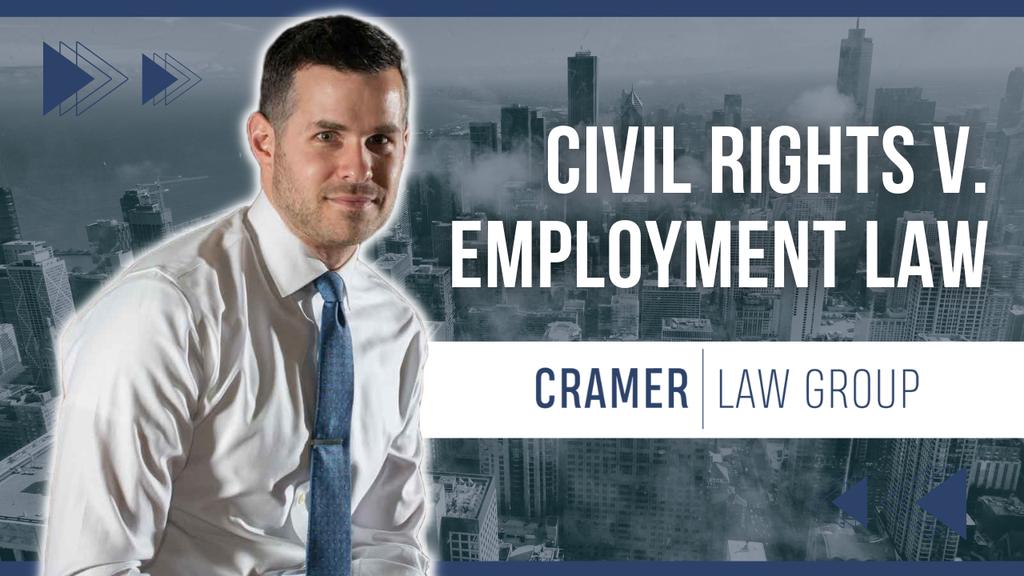
At Cramer Law Group, we often receive inquiries from individuals concerned that their civil rights have been violated. While some of these cases fall under the purview of employment law, others may not. In this post, we’ll break down when civil rights violations intersect with employment law and when it’s important to consult a civil rights attorney.
Civil Rights and Employment Law: The Intersection
Civil rights law and employment law overlap in some areas, but they also have distinct boundaries. The most common example of civil rights violations in the workplace is discriminatory termination, where an employee is fired based on their race, gender, disability, or other protected status. This type of wrongful termination is governed by Title VII of the Civil Rights Act of 1964, a federal law that prohibits discrimination in employment.
Many states have similar laws at the state level, such as the Illinois Human Rights Act, which mirrors the provisions of Title VII. These laws offer protection to employees from discrimination in the workplace and ensure fair treatment for all.
When Does Employment Law Apply to Civil Rights Violations?
As employment attorneys, we primarily deal with Title VII and its state equivalents, which apply to workplace discrimination. If someone calls us and expresses concerns about being discriminated against by a potential landlord, a business, or during a visit to a store, that falls outside the scope of employment law. In those cases, we would refer them to a civil rights attorney who specializes in these broader issues.
Civil rights attorneys handle cases involving disability access in buildings, unlawful imprisonment, and other matters that may not necessarily relate to employment but still constitute violations of an individual’s civil rights. These attorneys are experienced in navigating the complex web of civil rights laws, which extend beyond the workplace and into other areas of life.
The Role of Employment Attorneys
At Cramer Law Group, our focus is on employment-related civil rights violations, such as discriminatory hiring, firing, and workplace practices. While civil rights attorneys deal with broader civil rights issues, employment attorneys specialize in workplace-specific cases, like discrimination, retaliation, wage disputes, and wrongful termination.
Unlike civil rights attorneys, employment lawyers work closely with businesses to ensure compliance with labor laws and offer guidance on how to avoid potential legal issues. We stay current on the latest legal developments and advise employers on how to update company policies and practices to stay in line with changing laws.
Civil Rights vs. Employment Law: Key Differences
While both civil rights attorneys and employment lawyers may deal with cases of discrimination, the primary distinction is the setting. Civil rights attorneys handle a wide range of civil rights violations across various sectors, including education, housing, and government, while employment attorneys focus specifically on legal issues within the workplace.
Moreover, human resources (HR) departments often deal with workplace discrimination and legal compliance on a day-to-day basis. However, their role is different from that of an employment attorney. HR professionals manage personnel files, handle employee disputes, and ensure the organization’s compliance with employment laws. They may not have the same deep understanding of the nuances of employment law that an employment attorney does.
Why You Should Consult an Employment Attorney
As the laws surrounding employment and civil rights continue to evolve, it’s essential to have a knowledgeable advocate on your side. Whether you’re an employee who believes you’ve been discriminated against or an employer who needs guidance on maintaining legal compliance, having the right attorney is crucial.
At Cramer Law Group, we specialize in employment law and civil rights violations within the workplace. If you’re facing a discrimination issue at work or need advice on your employment rights, contact us today to schedule a consultation. We’re here to help protect your rights and ensure a fair and just workplace for everyone.



